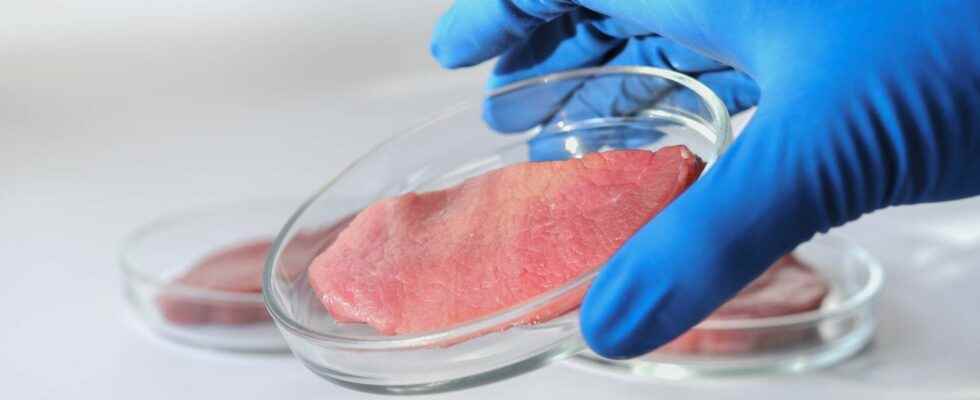Producing cultured meat on a large scale is currently a major hurdle. To get around it, an Israeli start-up is using tobacco plants as bio-reactors to produce expensive complex growth factors, some of which are derived from cattle.
You will also be interested
[EN VIDÉO] Lab-grown meat: an overview We interviewed Nicolas Martin-Forest, co-founder of Gourmey, to take stock of the definition and evolution of laboratory-grown meat. © Futura
Beyond the question of authorizing its marketing on the European market, the whole issue of cultured meat lies in the ability of its producers to find a solution to manufacture it on a large scale. In Israel, a company could have succeeded, using an ingredient that was not expected: tobacco! A discovery “What the Fuck” that we present to you in our series “What The Food”.
Back to Israel. It is right here that the subject of meat in vitro started to hatch. The start-up Aleph Farms is one of the very first laboratories to have communicated around the culture of a steak from stem cells. You have to leave the agglomeration of Tel-Aviv where this production of a new genre has surprised since its creation in 2017 to discover the new stage which is being played out in the saga of cultured meat.
Direction the northern border with Lebanon. welcome to BioBetter, another start-up that specializes in producing the culture medium needed for cells to reproduce to eventually look like a steak. Founded by a researcher at a University of Jerusalem, the company offers a cost-effective alternative to those hoping to market laboratory meat by growing tobacco plants.
Before becoming a piece of meat, cells needamino acidsof nutrients, but also growth factors to reproduce. These are very expensive items. The challenge of large-scale production lies in the simple fact of no longer using fetal serum taken from slaughterhouses.
” Companies are currently working to find a more ethical and less expensive serum-free solution of fetus bovine “, had entrusted to us Jean-Francois Hocquette, researcher at the National Food Research Institute (INRAE) at the start of the year. This private company touts the economic merits of its technology by stating that the production of these growth factors costs only one dollar per gram.
Israel has become a major research destination for “meat without meat “. According to The echoes, the country has 10% of companies working on this subject in the world. The companies concerned have invested more than 500 million dollars in 2021, the largest envelope behind those of American start-ups (around 700 million dollars).
Interested in what you just read?
